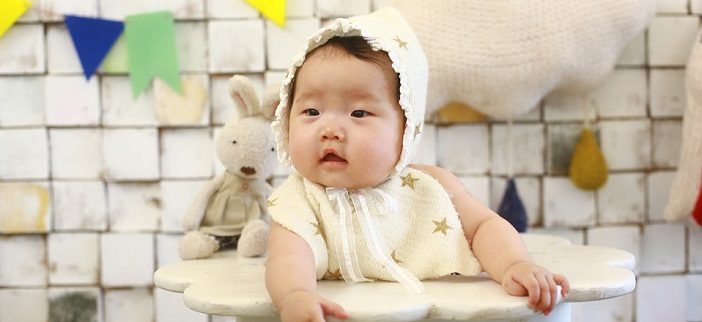Carrying our daughter around Beijing has been an interesting experience for me, because Jax was a lot older (and almost double her size) when we returned to Beijing in 2015. We’ve been carrying her ever since her neck could handle it (after 1 month) as she sleeps much better in a carrier, and Jax still wants shotgun in the stroller.
While babies are recommended to sleep outdoors (in the balcony/patio/porch) and pushed out for a walk lasting at least 15 minutes a day in Finland, in China, there’s a 100 day threshold. Babies stay home until they’re 100 days old.
While my mother, who is from Taiwan, celebrated Rina’s one month “birthday” (called man yue, or “full moon”), my mother-in-law (MIL) had refused to celebrate it with a banquet, fearing that all the germs from people would make her sick. No, we should wait to celebrate 100 days instead.
Celebrating 100 days is an old tradition that I was not familiar with before living in Beijing, but anyone with a newborn might be asked “Is she/he 100 days yet?”, or politely probe for your child’s age. You might hear whispers behind you back, commenting on how there’s no way that child is over 100 days, and yet their parents brought them outdoors! The outrage! You haven’t? Well, we certainly have.
Why 100 days?
One hundred days is an arbitrary number that was chosen for the following reasons:
- It was believed that a child’s immune system was poor before 100 days, so newborn babies were kept indoors for 100 days.
- Infant mortality rates were high, especially for babies under three months of age, so if a child survived 100 days, it was a cause for celebration.
- One hundred days roughly translates to three months, which marks the baby’s “fourth trimester”, or full year!
To prove what a big deal 100 days is in Chinese culture, here’s a link to the news story about the panda triplets’ 100 day celebration. Even the first lady (of China), Peng Liyuan, sends the pandas 100 day greetings–it’s that big a deal.
Photo: Pixabay




